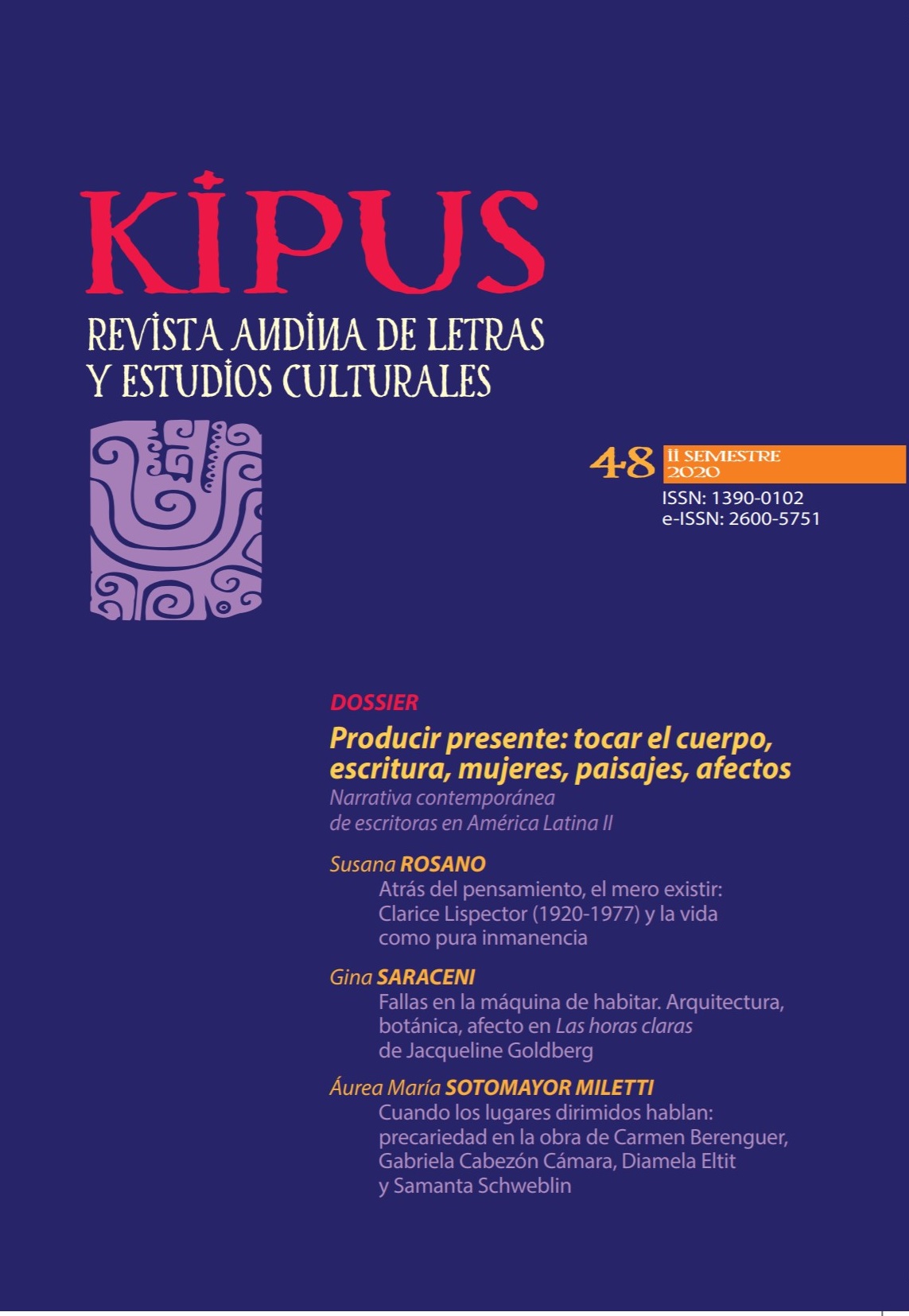Sumar by Diamela Eltit: Fiction’s radical excess
DOI:
https://doi.org/10.32719/13900102.2020.48.9Keywords:
Diamela Eltit, Chilean novel, dematerialization of work, informal market, precarious work, dystopic environmentAbstract
Reflecting on Diamela Eltit’s novel, Sumar (2018), Julio Ramos revisits the netting that binds life, literature and politics. In his lecture, Ramos interrogates the forms and categories that make up the bodies of a political unit, within the framework of speculative fiction and scopic environments, as well as the transformations of work and life under contemporary cybernetic and pharmacological regimes. Ramos observes that Eltit’s novel distances itself from the more recognizable practices of contemporary meta-fiction, and rather revitalizes fiction writing as a “craft of language through the relay of voices as the very matter of the act of novelizing”. In particular, Ramos’ reading highlights the danger of the extinction of an entire guild, that of street vendors: the last guardians of a certain for
Downloads
References
Butler, Judith. 2015. Notes Toward a Performative Theory of Assembly. Cambridge: Harvard University Press.
De Soto, Hernando. 1987. El otro sendero. La revolución informal. Lima: La Oveja Negra.
Eltit, Diamela. 2018. Sumar. Santiago de Chile: Seix Barral.
Gago, Verónica. 2014. La razón neoliberal. Economías barrocas y pragmática popular. Buenos Aires: Tinta Limón.
Guerrero, Javier. 2018. “Los paisajes cerebrales de Diamela Eltit”. Literal. Latin American Voices/Voces Latinoamericanas. Septiembre. https://literalmagazine.com/los-paisajes-cerebrales-de-diamela-eltit/.
Hardt, Michael, y Antonio Negri. 2017. Assembly. Londres: Oxford University Press.
Ramos, Julio. 2000. “Dispositivos del amor y la locura” (Boletín del Centro de Estudios de Teoría y Crítica. Rosario, octubre 1998). En Creación y resistencia: la narrativa de Diamela Eltit (1983-1998), editado por María I. Lagos. Santiago de Chile: Cuarto Propio.
Richard, Nelly. 2010. “Una alegoría anarco-barroca para este lamentable comienzo de siglo”. Papel Máquina (Santiago de Chile), n.º 5: 31-9.
Downloads
Published
How to Cite
Issue
Section
License

This work is licensed under a Creative Commons Attribution-NonCommercial-ShareAlike 4.0 International License.







.png)
